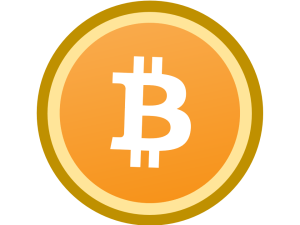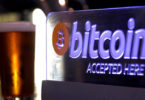A new book on genomics, robotics and other industries of the future argues that Bitcoin may have the potential to transform the financial services sector
Alec Ross’ book, The Industries Of The Future: How The Next 10 Years Of Innovation Will Transform Our Lives At Work And Home, is like a crystal ball. It looks at advances in areas like robotics, genomics, virtual money, hacking and big data and tries to predict what the future might look like—in our lifetime.
Ross served as senior adviser for innovation to then US secretary of state Hillary Clinton from 2009-13. He is now a distinguished visiting fellow at Johns Hopkins University in the US.
In the chapter titled “The Code-ification of Money, Markets, And Trust”, he talks about leaving home without a physical wallet, the potential of cellphones to transform payment systems, and the brouhaha around Bitcoin as a currency versus a protocol. Edited excerpts:
The powers that be in Silicon Valley see Bitcoin heading mainstream. But if so, where will it eventually take hold? In my view, the best case for Bitcoin is not as a currency but as a protocol, relying on the new possibilities offered by the blockchain.
In the same way HTML became the protocol markup language for the World Wide Web, the blockchain may have the technological ingenuity to become the protocol for trusted transactions. The Web was essentially made by HTML. The great innovation of Tim Berners-Lee, the Web’s creator, was that he made the Internet something visible, accessible, and easily navigable—and that allowed other innovations to be layered on top of the platform. The blockchain makes trusted transactions the basis—the protocol—on which much else can be built. The blockchain could provide a much lower-cost solution for transactions that require a third-party intermediary as a guarantor such as legal documents, brokerage fees, and ticket purchases.
Charlie Songhurst believes that “the problem with the Internet from 1995-2010 is that it enabled information dissemination and communication but lacked any ability to transfer value between individuals. From 1995-2010 any industry in information services has been transformed beyond all recognition—newspapers, music, TV, etc.—as has any industry involved in communication and connection between individuals—phone, fax, auctions, recruiting etc.” Citing the lack of a mechanism for high-value trusted transactions, Charlie adds, “Conversely from 1995 to the present day there has been almost no impact of the internet on the financial services or legal industries. The process of performing a wire transfer, opening a bank account or setting up a will has remained unchanged.”
Joi Ito, director of the MIT Media Lab, expands on this idea: “My hunch is that The Blockchain will be to banking, law and accountancy as The Internet was to media, commerce and advertising. It will lower costs, disintermediate many layers of business and reduce friction. As we know, one person’s friction is another person’s revenue.”
Charlie forecasts the elimination of commissions for the sale of stocks or bonds, since they can be transferred on the ledger. He imagines that contracts can also be embedded on the ledger, including proof of ownership for hard assets like land. This is yet another example of how digital networks and digital trust can do away with traditional middlemen as arbiters and authorities.
As Charlie explained this to me, I knew he was right—that at least some of these areas are poised to transform. When my wife and I bought a home in summer 2014, the process was no different than when my parents bought a home in the 1960s. There were huge piles of paper with signatures and seals. It took weeks to sort the records, and on the day of the sale, it took hours to get through all the paperwork. The process of verification was manual and ridiculously expensive. We paid thousands of dollars in legal closing costs to verify a transfer that could be done electronically for nearly nothing if some technology-based ingenuity were applied. As I had this thought, I could not help but note that this is what my father has done for a living for 45 years. It is hard to think that a young lawyer today could count on 45 years of employment organizing legal documents for home buyers.
For all of the controversy around Bitcoin’s suitability as a currency, even its critics have to acknowledge how impressive an advance it is technologically (if they care to learn about it). As Marc Andreessen has described, “Bitcoin at its most fundamental level is…a breakthrough in computer science—one that builds on twenty years of research into cryptographic currency, and forty years of research in cryptography, by thousands of researchers around the world.”
For this reason, the blockchain could endure as a platform for trusted transactions even if it founders as currency. I can imagine investment banks establishing walled-garden blockchains of their own to save money on high-value transactions.
The necessary big change for Bitcoin when it comes to such major transactions is the use of real identity. No more anonymous accounts. This idea may be anathema to its early advocates, but the one thing that would address nearly all of the problems swirling around Bitcoin is doing away with its near-religious insistence on secrecy. When land purchases are recorded in the United States, those records are public. That level of transparency may not be necessary, though it would not hurt, but at a minimum, there needs to be some way to authenticate real identity. Under this scenario, if your private key is lost or stolen, you can reassert ownership, perhaps taking advantage of advances in biometrics. Incidence of fraud and abuse would plummet. Many of the cyber-libertarians who helped give birth to Bitcoin would flee, but more mainstream institutions would feel comfortable doing business in the blockchain. The blockchain’s engineering could remain decentralized, but there would need to be some multi-stakeholder institutions in place to help govern the blockchain in the same way that the Internet is decentralized but has organizations running processes like domain name registration.
Source : http://www.livemint.com/Leisure/RXSIl8TvuVsFPPAKGLarDJ/How-about-Bitcoin-as-a-protocol.html
Click on the bitcoin logo below to buy, use or accept bitcoin. Unocoin is India’s most popular bitcoin wallet.
To read the bitcoin white paper, visit: https://bitcoin.org/bitcoin.pdf









